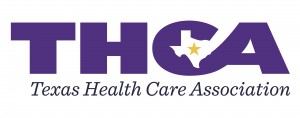February 25, 2015

For Immediate Release
February 25, 2015
Contact: Rebecca Reid
410-212-3843
THCA Testifies Three Strike Bill Will Have Unintended Consequences For All Texas Nursing Homes
State’s Largest Nursing Home Provider Association Says Three Strikes Could Potentially Close
High Performing Facilities and Jeopardize Access to Eldercare
(Austin, TX) – The Chair of the Texas Health Care Association (THCA) Board of Directors today testified before the Senate Health and Human Services Committee and cautioned lawmakers that proposed “Three Strikes” legislation, intended to target a small number of chronic underperforming nursing homes, will instead cast a wide net over Texas long term care facilities and potentially jeopardize access to local skilled nursing care.
“We understand the goal of the Three Strikes bill is to make certain the state’s regulatory agency executes its responsibility to ensure skilled nursing facilities provide quality care to the frail elderly in a safe and healthy environment,” said Ron Payne, Chair of the Board of Directors for THCA and CEO of Southwest LTC Management Services, LLC. “THCA member providers share that goal but believe the answers to achieving it lie in a different strategy and implementation of existing regulation.”
If passed, Senate Bill 304 would expand the authority of state agency personnel to determine whether a facility remains open. The results of those determinations could affect the quality of care for thousands of elderly in the state’s 1,200 nursing facilities. The current statutory framework provides the Department of Aging and Disability Services (DADS) appropriate authority, including the discretion to revoke a license where a facility violates a regulatory requirement in either a repeated or substantial manner. DADS is also authorized to suspend a facility’s license and order the facility closed where DADS finds the facility has violated a standard and the violation creates an immediate threat to the health and safety of a resident.
Also testifying before the Committee, Liam Frye, M.D., a board certified geriatrician and certified medical director of long term care facilities in the Austin area noted an already adversarial and highly subjective survey process. “There is tremendous variation, seemingly left to the whim of the individual surveyor, as to what constitutes a violation,” said Dr. Frye. “The policy of heavy fines and penalties does not seem to be working. Rather, there needs to be some way to put money back into the nursing homes and for the Department of Aging and Disability Services (DADS) to help and assist them.”
The THCA has recommended an alternative proposal to SB 304 entitled Protecting Resident Choice that, among other things, recommends increased transparency on the part of the provider by requiring notification to residents and family members when a facility receives certain violations on a state survey.
“Three Strikes removes the discretion of the regulatory agency to revoke a nursing home license and without examination of circumstances around the violations, mandates closure,” said Payne. “State regulation currently provides for the authority to close the doors of nursing homes that are repeat underperformers, to require correction plans from facilities earnestly addressing their care challenges, and to recognize facilities with consistently excellent survey results. Those are three different types of facilities, yet all would be impacted by SB 304.”
In a statewide, ongoing effort to enhance the level of care in Texas nursing homes, the Texas Health Care Association (THCA) recently announced the Commitment to Care, an initiative by nursing home providers to chart a strategic course to improve care quality for seniors, promote transparency and accountability among providers and collaborate with senior advocates on the goal of establishing Texas as a national leader in eldercare.
“Our members support the expansion of approaches that provide early detection and intervention for process failures or unsafe practices to improve quality, rather than an enforcement mechanism that would displace residents and staff, and result in broad reaching consequences for the residents, employees, and the communities served,” testified Payne. “That said, serious violations of health and safety standards in Texas facilities are never acceptable and we must be committed to do all we can to ensure they are prevented.”
# # #
To learn more about Commitment to Care, please visit txhca.org/quality-care/commitment-to-care. For ongoing Twitter updates and information, follow @TXHCA and the #Commit2Care hashtag.
About THCA
Founded in 1950, the Texas Health Care Association (THCA) is the largest long-term care association in Texas. THCA’s membership is comprised of several hundred licensed non-profit and for-profit skilled nursing facilities (SNFs), specialized rehabilitation facilities and assisted living facilities in Texas. These facilities provide comprehensive, around-the-clock nursing care for chronically ill or short-term residents of all ages, along with rehabilitative and specialized medical programs. THCA also represents more than 190 long-term care businesses that provide products and services to the state’s approximately 2,850 nursing homes and assisted living facilities. To learn more, visit https://txhca.org/ or connect with THCA on Facebook, Twitter and YouTube.






